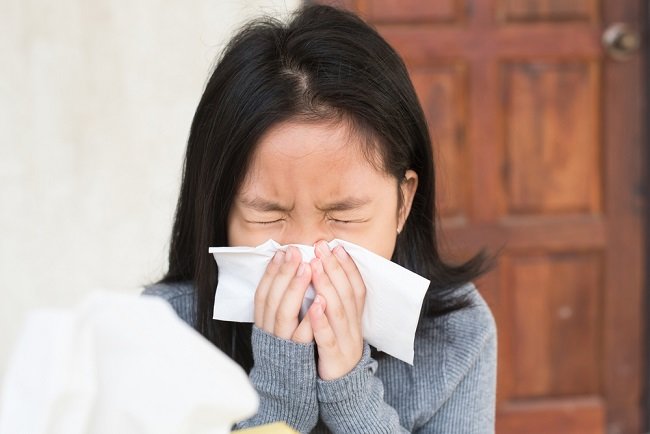5 Children's Flu and Cough Medicines and How to Relieve the Symptoms
Children's cold and cough medicine is often the choice of parents when their child has a cold accompanied by a cough. This drug consists of various types with different ingredients, so the administration should not be arbitrary. Apart from that, there are also other ways to relieve flu and cough symptoms in children.
Flu and cough in children are conditions that are very common and often even come and go. Generally, children who experience flu and cough do not experience severe symptoms and can recover on their own

If flu and cough make a child look lethargic so they cannot concentrate on studying or doing other activities, parents may give their child cold and cough medicine.
This drug is widely sold in pharmacies and supermarkets, but parents are more advised to consult a doctor first so that the type of drug content and dosage can be adjusted to the child's condition.
Various Medicines for Children's Flu and Cough Medically
There are several ingredients in commonly used children's cold and cough medicines, namely:
1. Dextromethorphan
Dextromethorphan is useful for relieving coughs, but not for treating or accelerating the healing of coughs and colds. The way it works is by reducing the cough reflex, so that the intensity of the cough is reduced
This type of cough and cold medicine for children can only be consumed by children aged 4 years and over and the dose needs to be adjusted according to the age of the patient.
2. Bromhexine
If a child has a cough accompanied by phlegm that is difficult to come out, bromhexine can be used to thin the phlegm. Thus, phlegm will be easier to expel and breathing can be relieved again
Children's cough and cold medicines can be consumed by children aged 1 year and over. However, make sure to always read the rules for use on the product packaging to meet the correct dosage for children.
3. Guaifenesin
Guaifenesin is a type of cold and cough medicine for children that can thin phlegm as well as stimulate coughing so that phlegm is easily expelled and breathing is relieved again. Do not give guaifenesin to children under 2 years of age, unless it has been prescribed by a doctor.
4. Pseudoephedrine
Pseudoephedrine is a cold and cough medicine for children to treat nasal congestion and colds that occur during the flu. This medication works by reducing the swelling of the blood vessels in the nose that cause nasal congestion. This drug is generally given to children over the age of 12.
5. Antihistamines
This child's cough and cold medicine works to relieve flu symptoms, such as runny nose, sneezing, and watery eyes. Antihistamines can block the action of histamine, which is a chemical that causes the above symptoms. However, do not give this medicine to children under 2 years of age, unless directed by a doctor.
There are several types of cold and cough medicines for children that contain a combination of the above medicines. Generally, these medicines are consumed 3 times a day and need to be stopped if the flu and cough symptoms have subsided.
Children's cough and cold medicines consisting of a combination of these drugs are also widely sold in pharmacies and supermarkets. If you want to give it to your little one, be sure to always read the directions for use on the packaging.
If your child's age has not met the minimum limit for use, you should consult a doctor to get the right and safe dose of medicine.
Simple Ways to Overcome Children's Flu and Cough
Before giving your child cold and cough medicine, you can do the following simple ways to help relieve cold and cough symptoms for your little one:
- Make sure your little one gets plenty of rest so that his immune system can fight off the viral infection he is currently experiencing.
- Fulfill your little one's fluid needs to relieve a sore throat and overcome the congestion he is experiencing.
- Enough nutritional intake by consuming nutritious food.
- Bathe your little one in warm water to relieve fever which often occurs during the flu.
- Compress your little one with a towel that has been soaked in warm water for 15 minutes and may be repeated several times to relieve fever.
- Before going to bed, clean your little one's nose using saline or salt water so that the mucus that is blocking his nose can drain out.
- Elevate your little one's head while sleeping using a pile of pillows to open the airways.
- Avoid your little one from exposure to cigarette smoke, dust, and outdoor air pollution.
- Keep the humidity in the room with a humidifier, especially if you are in an air-conditioned room.
Although most cold and cough medicines for children are sold freely in pharmacies, it is still best to consult a doctor before giving them to your little one. This is because the dose of cold and cough medicine for children needs to be adjusted according to their age or weight.
Label : Health
Comments
Post a Comment